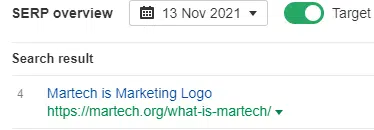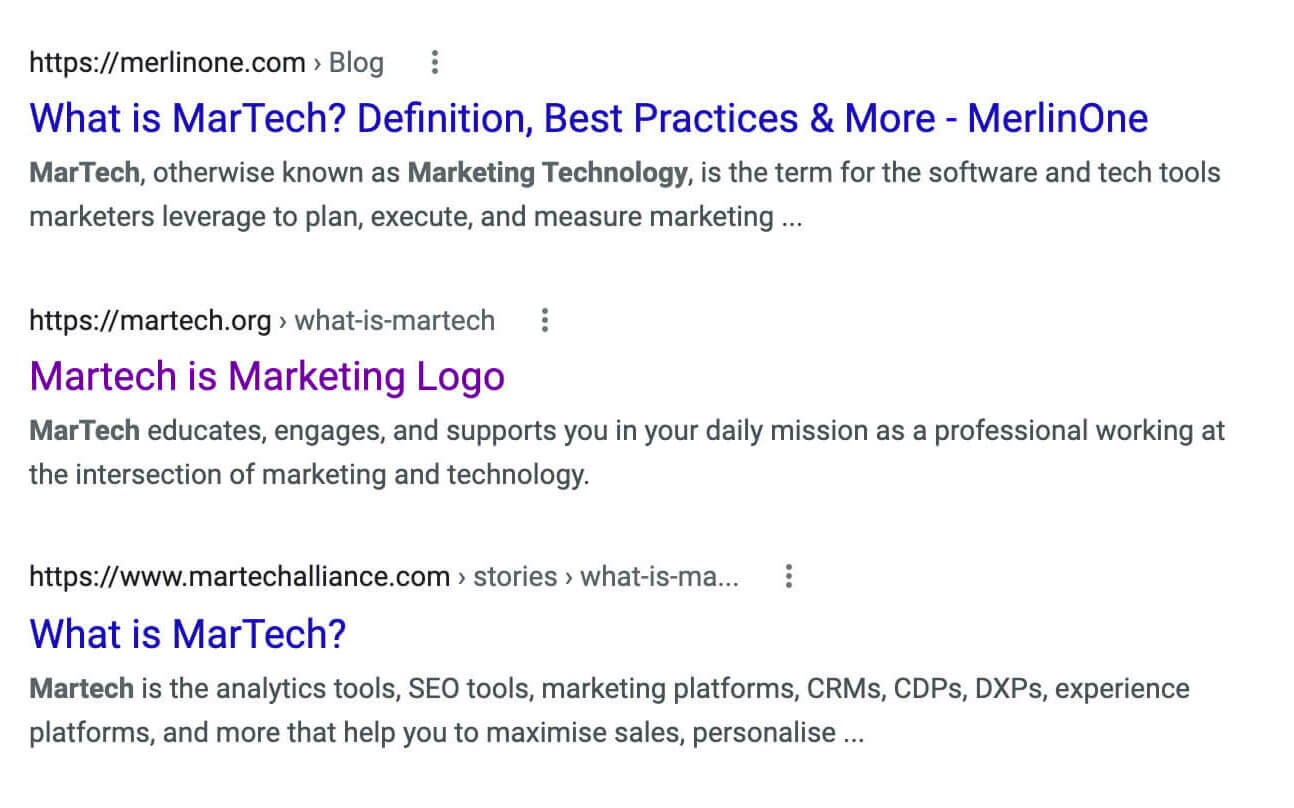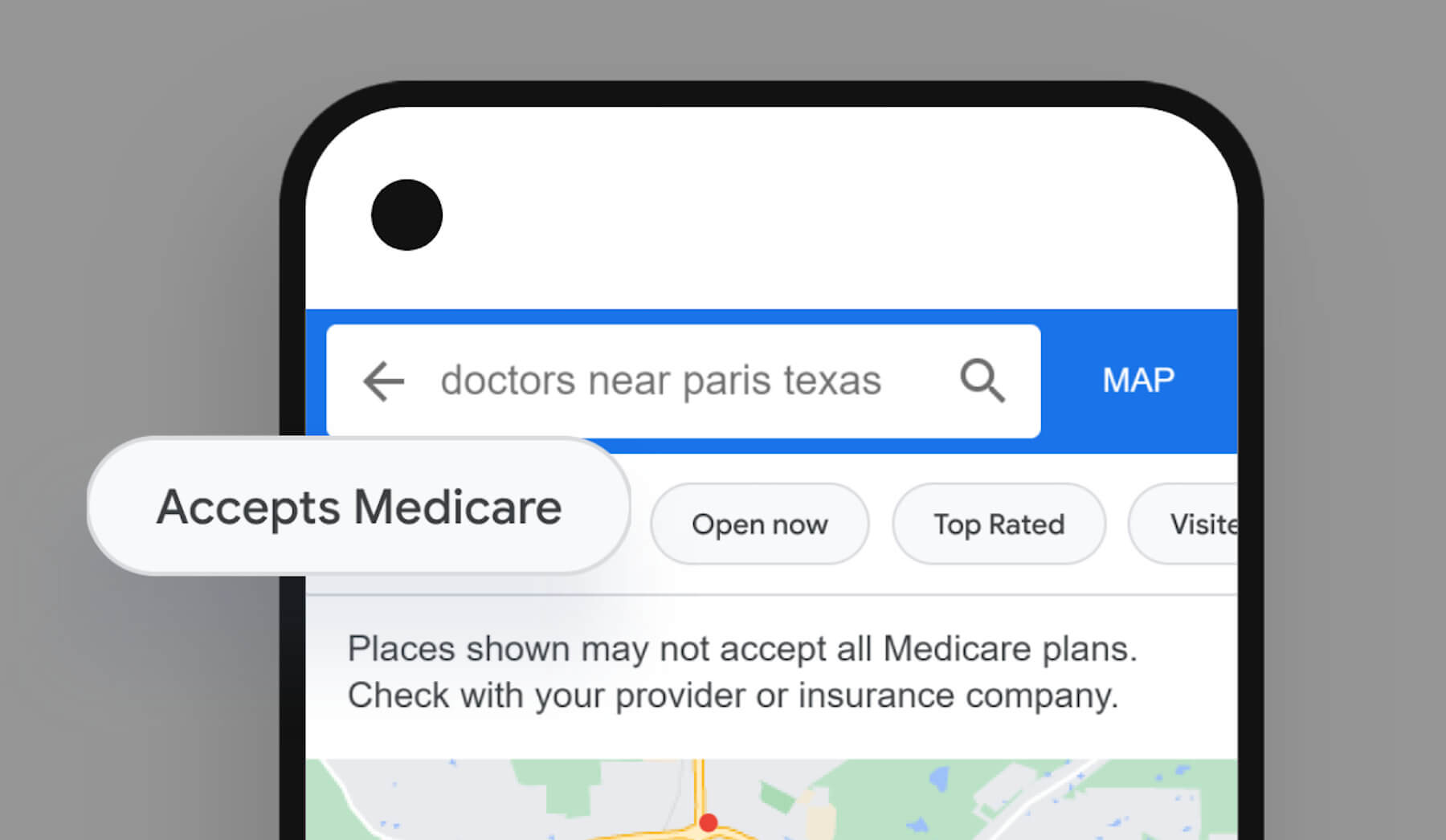Messy SEO is a column covering the nitty-gritty, unpolished tasks involved in the auditing, planning, and optimization of websites, using MarTech’s new domain as a case study.
This installment of “Messy SEO” details my process of addressing the SERP title change made to one of our most important MarTech pages. In Part 3, we discussed the tactics we used to fix broken images, find the correct replacements and, ultimately, improve user experience.
RELATED: Navigating Google’s title changes: The rollout, what’s happening now and what you can do about it
Analyzing the Google SERP title tag changes
Ever since Google announced changes to its SERP page title generation process, SEOs have been scrambling to measure its impact, adjusting their strategies when necessary. Many organizations saw minor changes to their site’s title tags, but there were some notable exceptions. Our team, in particular, noticed a major edit to our MarTech mission page title link (the title of a search result in Google Search).


The SERP title was changed to “MarTech is Marketing Logo,” (shown above) which is pulled from our MarTech site’s header logo alt text. Whereas the original title link (shown below) was our chosen title (“What is MarTech? …This is MarTech”), Google opted to display a piece of alt text that gives little context and fails to encourage clicks.


Reviewing the changes in clicks and CTR
Most of the MarTech SERP title changes we’ve seen haven’t changed drastically. As a result, their clicks, impressions and CTR numbers stayed at expected levels over the past few months.
But, we wanted to zoom in on the search metrics for our “What is Martech?” page to see what impact an unwanted title change made by Google has had, especially since it’s one of our most visited pages. Spoiler alert: It wasn’t good.


Knowing the SERP title change took place between October 27 and November 1, we compared the page’s November performance to its October results. We found that the page’s total clicks decreased from 2,301 to 1,500 and the average CTR went from 3.1% to 2%.
The total impressions went from 73,691 to 75,427 and the average position remained 12.7. This implies that the SERP title change hasn’t affected visibility or rankings (as Google said it wouldn’t), but rather heavily discouraged people from clicking on the result.
Clearly, the SERP title change hurt our traffic, so we needed to find a way to address it.
Taking steps to change the SERP title
Waiting for Google to change the title on its own is the last thing we wanted to do. We decided to take action right away. Here are a few of the tactics we’ve tried so far.:
- Resubmit the page. We immediately resubmitted the page to Google via Search Console. While this isn’t likely to change anything, there’s always the chance it helps crawlers pick up on page elements they’ve missed — in this case, our title tag.
- Update the title tag. Since it appears the algorithm had an issue with our chosen tag, we made an adjustment. We were careful not to transform it completely; it is now ”What is MarTech? …MarTech is Marketing.” This version more clearly points to the topic of the page, which we hope Google notices.
- Add contextual internal links. There are already plenty of internal links pointing to this page, but we wanted to be sure Google had plenty of context. So, we added more links with contextual anchor text to the page — keyword phrases such as “what is martech,” “martech is marketing,” or simply “martech” — to show the crawlers what this page is actually about.
- Monitor the SERPs. We’re keeping an eye on our title link to see if these changes helped. We will continue repeating these steps every week or two — as long as it takes.
Have your title links experienced major changes over the past few months? What strategies have you implemented and have any been successful? Email me at [email protected] with the subject line “Messy SEO Part 4” to let me know.
More Messy SEO
Read more about our new MarTech domain’s SEO case study.
- Part 1: Navigating a site consolidation migration
- Part 2: The importance of canonicalization
- Part 3: How to find cached images and improve user experience
Contributing authors are invited to create content for Search Engine Land and are chosen for their expertise and contribution to the search community. Our contributors work under the oversight of the editorial staff and contributions are checked for quality and relevance to our readers. The opinions they express are their own.



